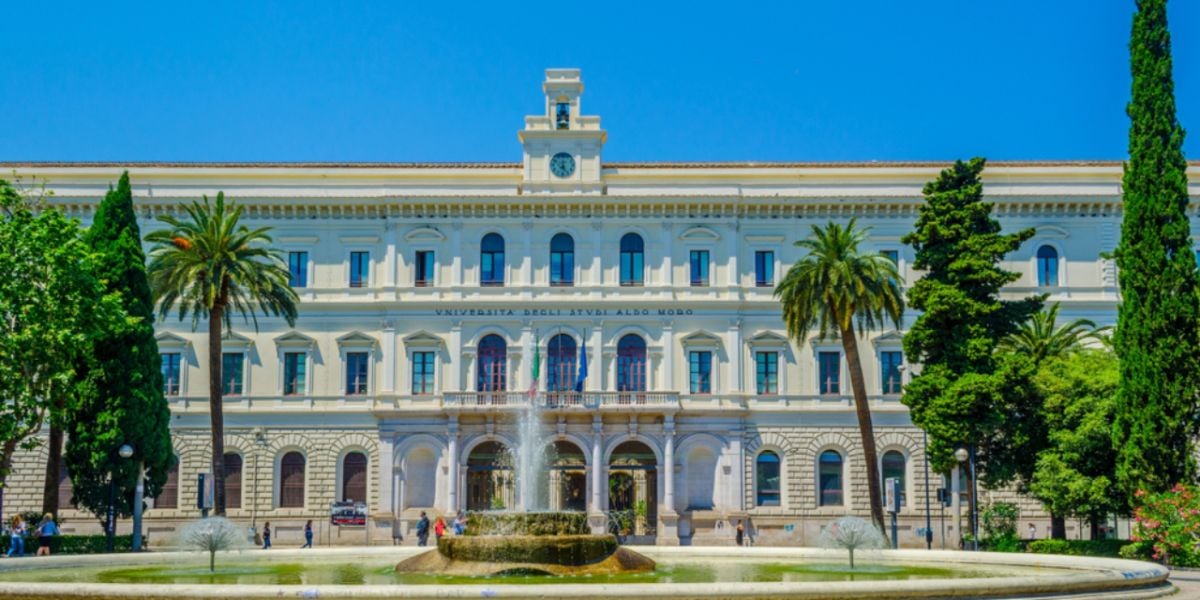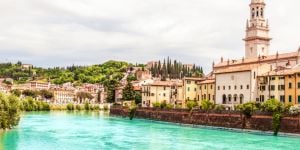
If you are a student looking for a university experience in Italy, here are some steps to take to get started. Italy is home to some of Europe's oldest and most prestigious universities, if not the world.
This is particularly true of the University of Bologna (Alma Mater Studiorum), which has existed since its foundation in 1088. This university is also at the origin of the Bologna Process, which standardized higher education qualifications across Europe. Other institutions, such as the University of Padua and La Sapienza, and the University of Rome, are no exception and are a testament to Italy's academic wealth.
Studying in Italy offers an excellent opportunity for any foreigner to broaden their horizons, enriching their learning experience with a plethora of subjects such as fine arts, music, culture, and architecture, whose quality of teaching is renowned. The context in which you study will give you the impression of living in an open-air museum at all times, with Italy's cultural heritage and architecture being particularly rich, from the Alps to Sicily. You will be surrounded by history, beauty, gastronomy and landscapes that only the Bel Paese can offer.
The university context in Italy
The Italian higher education system is composed of a total of 97 institutions, including:
- 67 are state universities,
- 19 are legally recognized non-state universities,
- 11 are legally recognized non-state telematic universities.
In Italy, the university is often referred to with the term ateneo (from the Latin Athenaeum); you will read or hear this word often during your stay in Italy. You will recognize public institutions by the term used, Università degli Studi (di Milano, di Roma, etc.). Keep in mind that tuition fees vary greatly depending on whether you choose a public or private university, sometimes reaching €15,000 per year for the latter. In Rome, this is the case for the Luiss, Libera Università Internazionale degli Studi Sociali Guido Carli.
There is also a type of non-university higher education, including design and fashion colleges, marketing colleges, integrated education colleges and language mediation colleges, which also provide good professional training.
One million eight hundred twenty-two thousand one hundred forty-one students were enrolled at universities in Italy for the academic year 2021/2022 (according to figures from the Ministry of University and Research), and in the same year, 370,758 students graduated.
The Universitaly website (of the Ministry of University and Research) lists Italian universities. It provides, in addition to a detailed presentation of each college or university, a range of information on orientation, study pathways, costs and fees, as well as useful statistics for an overview of the university system and its position in Europe.
Choosing a university in Italy
Italy is home to a wide variety of universities. Still, before choosing which institution to attend, it is advisable first to choose the university course and the subjects you wish to study. Many European countries offer student exchange programs, such as Erasmus, which allow you to study in Italy for three to twelve months. If your university has agreements with the Bel Paese, this can be a good reason to study in Italy.
Erasmus is an exchange program that offers students the opportunity to study at one of more than 4,000 higher education institutions in participating countries. For more information, see the Erasmus website.
The Italian university system is based on the 3 cycles of the Bologna process (the higher education reform initiated in 1999 and completed in 2010). The main Italian degrees follow the LMD system (license, master, doctorate) in force in Europe. They are: Laurea Triennale (1st cycle), Laurea Magistrale (2nd cycle) and Dottorato di Ricerca (3rd cycle). The system also offers other academic courses with corresponding diplomas.
Laurea Triennale (Baccalaureate)
This undergraduate course is usually completed in three years if you study full-time. Subjects and streams vary considerably, covering medicine, science, humanities, social sciences and technology. The courses offered in this first cycle are aimed at mastering general methods and content, as well as acquiring specific professional knowledge.
To enter this first course, students must have passed the baccalaureate (general, vocational or technological education) or the diploma di Maturità, also called esame di stato. At the end of this cycle, the student must have acquired 180 university training credits (CFU), equivalent to ECTS credits. A period of internship may be required as well as the discussion of a thesis or the preparation of a final essay. The degree title opens the way to the Laurea Magistrale and other graduate courses.
Good to know:
Most Lauree Triennali courses are taught in Italian, so you will need to prove your language proficiency before being accepted onto the course.
Laurea Specialistica or Magistrale (Masters)
This course usually lasts two years and is divided into four terms or semesters. It offers advanced training for highly qualified activities in specific fields. Access to the courses is subject to possessing a university degree, laurea, or an equivalent foreign degree. To obtain the Master's degree, the student must have acquired 120 credits (CFU) and have presented a research thesis.
Some fields of study, e.g., medicine, architecture and law, are defined as "single cycle courses", Corsi di Laurea Magistrale a Ciclo Unico. Admission is subject to a selection test, and studies are spread over 5 years (6 years for medicine).
Many Italian universities now offer Masters degrees taught in English.
Dottorato di Ricerca (PhD)
The Master's degree and the successful completion of a competitive examination give access to the Ph.D. and other postgraduate courses. This course typically takes three to four years, during which you will need to complete an individual research project.
The aim of the course is to acquire a proper methodology for advanced scientific research. To this end, it provides students with a variety of innovative methodologies and new technologies and includes internships abroad and visits to research laboratories.
There are also other cycles that are specific to the Italian system, such as the Masters of Specialisation and the post-laureate courses.
Italian universities can set up study programs in cooperation with other Italian and/or foreign universities, leading to joint or multiple degrees. Find out more from your university and from the university that will host you during your stay in Italy.
University admission in Italy
If you wish to study in Italy or have an Erasmus experience there, contact your chosen Italian university for precise eligibility requirements. You will also need to submit a pre-registration application to the Italian Embassy in your country of citizenship with the following documents:
- a completed application form,
- a university pre-registration form,
- a certificate of completion of studies,
- academic transcripts,
- a copy of your identity card (and 2 photos) and a tax code,
- the results of your Italian language test (if required),
- Any other documentation that will depend on the destination university and/or the Italian authorities.
Important:
All documentation must be translated by a state-recognized and notarised translator.
If you are an EU citizen, you will receive a letter of academic eligibility at the chosen university from the Italian Embassy in your home country. The chosen university institution reserves the right to accept or reject your application. If you are a third-country citizen, the embassy will have to determine whether you are eligible for a student visa for Italy. For some years now, the pre-registration procedure for an Italian university can be done online via the Universitaly website.
Some Italian universities have set up a real support system for international students, as they have traditionally been involved in the international circuit for many years. This is the case of the following universities in particular:
- University of Turin (open to France in particular),
- University of Bologna,
- University of Padua,
- University of Florence,
- University of Venice,
- University La Sapienza in Rome (incidentally preferred city by Erasmus students in 2021),
- University of Milan.
Student visas in Italy
If you are a European Union citizen, you will not need a visa to study in Italy. Still, you will have to register with the municipality of your place of residence within eight days of your arrival in the country for any stay longer than 90 days. In addition, diplomas obtained abroad must be legalized in accordance with Italian law. Each document must be accompanied by an official translation into Italian and presented to an Italian diplomatic-consular representation. The Italian embassy or consulate will provide a declaration of value (Dichiarazione di valore), confirming that the grades are equivalent to those of the Italian educational system.
On the other hand, third-country citizens must apply for a specific visa related to studies before traveling to Italy. The application must be made at the Italian consulate or embassy of your country of citizenship.
Here is the list of required documents:
- The completed visa application form (to be downloaded from the Consulate website)
- Your passport, which must be valid for at least 3 months after the expiry of the requested visa
- A tax code
- Your flight reservation or ticket
- A recent passport photo
- The certificate of residence or a facsimile
- A certificate proving your pre-registration at the chosen university, the number of hours per month, and the start and end dates of the course
- Accommodation booking for the duration of your stay in Italy (rental contract or declaration of accommodation) and the availability of the necessary funds in case of repatriation
- Documents proving that you can support yourself during your stay
- Proof that you have taken out international health insurance for at least one year for urgent medical treatment and hospitalization in Italy.
Within eight working days of arriving in Italy on a "national" long-stay visa, you will need to apply for a residence permit at the Questura (police headquarters) competent for the city in which you intend to establish your residence.
Important:
Before applying for a student visa for Italy, students from third countries must pre-register with the university of their choice on Universitaly, a platform that allows them to complete the formalities online. Once the university has validated this pre-registration request, it must be included in your visa application file. Please note that all documentation provided must be translated by a state-recognized and notarized translator. In addition, it is advisable to pre-register well in advance as the procedures are usually lengthy.
Once the visa is in hand, students must go personally to the university to register (Immatricolazione) and then apply to the Questura for a long-term residence permit (Permesso di soggiorno a motivo di studio) within eight days of their arrival in Italy.
Pedagogy and university culture in Italy
The academic pattern in Italy differs from that of many other European countries. Studies are more like a seminar, a long research project where the student must do a lot of personal work. Attendance is sometimes optional (depending on the faculty and subject), and exams are mainly oral and are the culmination of the course. Students are faced with their responsibilities from the start and must therefore manage their course programs almost autonomously. This methodology is generally the norm throughout Italy.
In purely practical terms, a university academic year in Italy generally starts later than in Northern Europe. It is common to see courses starting in October and ending around February. The second semester, therefore, ends later, usually in July. In addition, students have the freedom to choose the date on which they wish to sit an exam
Before starting an experience at an Italian university, take the time to ask for all the necessary information from your university and check that your course of study authorizes the exchange. Then contact the international/Erasmus department of the institution you choose for your studies in Italy. Whether you want to start a master's degree, an internship, or a doctorate, every Italian university has numerous exchange and cooperation programs with many institutions around the world.
Fees and funding for studying in Italy
Tuition fees in Italy vary depending on the university and the course you choose, especially if they are public or private. On average, studying in Italy costs more than other European countries, such as France or Belgium. The cost of living in some Italian cities, such as Milan, is also high.
Universities in Italy set fees according to students' family income (ISEE). Students enrolled in public universities can apply for a state-funded DSU (Diritto allo studio) grant from the grants office. Students in physics, astronomy, engineering and ICR can benefit from the Istituto Nazionale di Fisica Nucleare scholarships.
These grants allow free access to university canteens, provide vouchers of 5 euros (or the equivalent of a meal ticket) per day for commuter students to spend in certain supermarkets, and cover part of the student's expenses.
To be eligible for a scholarship, the conditions are as follows:
- submit a family income declaration which must be low/medium;
- have accumulated a minimum number of credits for the year (from 20 to 35, depending on whether it is a bachelor's or master's degree)
- not be receiving other scholarships in the same year,
- be enrolled for full-time studies,
- not be enrolled in the same course for more than one year.
In addition, all universities offer part-time paid employment opportunities in some academic departments.
Good to know:
The Italian Ministry of Foreign Affairs and International Cooperation offers scholarships to international students with the aim of fostering cooperation in the field of culture, science and technology but also promoting the spread of the Italian language and culture in the world. You can find the scholarship announcements for each academic year on the Study in Italy website.
Important:
If you are an EU or EEA citizen, university fees will be equivalent to those paid by Italian citizens. For non-EU citizens, the fees will be higher.
All students in Italy can apply for grants and scholarships, which are awarded on the basis of financial situation and academic achievement. These can be awarded by the government, foreign companies, Italian universities, and other institutions.
Student accommodation in Italy
Many students in Italy live close to their university, in flats or shared rooms. University areas are easier to socialize in, safer and well-connected to bars and supermarkets. If you have any questions about which area to choose, check out our articles on accommodation in major Italian cities such as Milan, Rome, Florence and Turin.
University campuses are mainly intended for students with scholarships. Italian universities do not generally have (or have only a few) residence halls, but they do have accommodation search services. In Milan, some universities, such as the University of Milan (Università Statale di Milano), and UniCatt (Università del Sacro Cuore), provide accommodation in some of their student residences. As with scholarships, student accommodation in Milan is allocated on the basis of merit and the economic situation of students and their families. For example, UniCatt offers guesthouse accommodation (Foresteria) or hall of residence accommodation with which it has established agreements. This allows for discounts of up to 50% off the standard rates. These are Campus In-Domus or Camplus.
The Erasmus office of your destination university can also give you some advice. They usually have a well-stocked network of landlords who rent studios or rooms to international students.
To start your search for student accommodation in Italy, you can check out websites like Dotstay, Uniaffitti, or Roomtastic, where you will mainly find listings for flats and studios to share with students, but also rooms, albeit with a smaller living space.
Useful links:
Ministry of University and Research
CIMEA - Centro di Informazione sulla Mobilità e le Equivalenze Accademiche
We do our best to provide accurate and up to date information. However, if you have noticed any inaccuracies in this article, please let us know in the comments section below.








